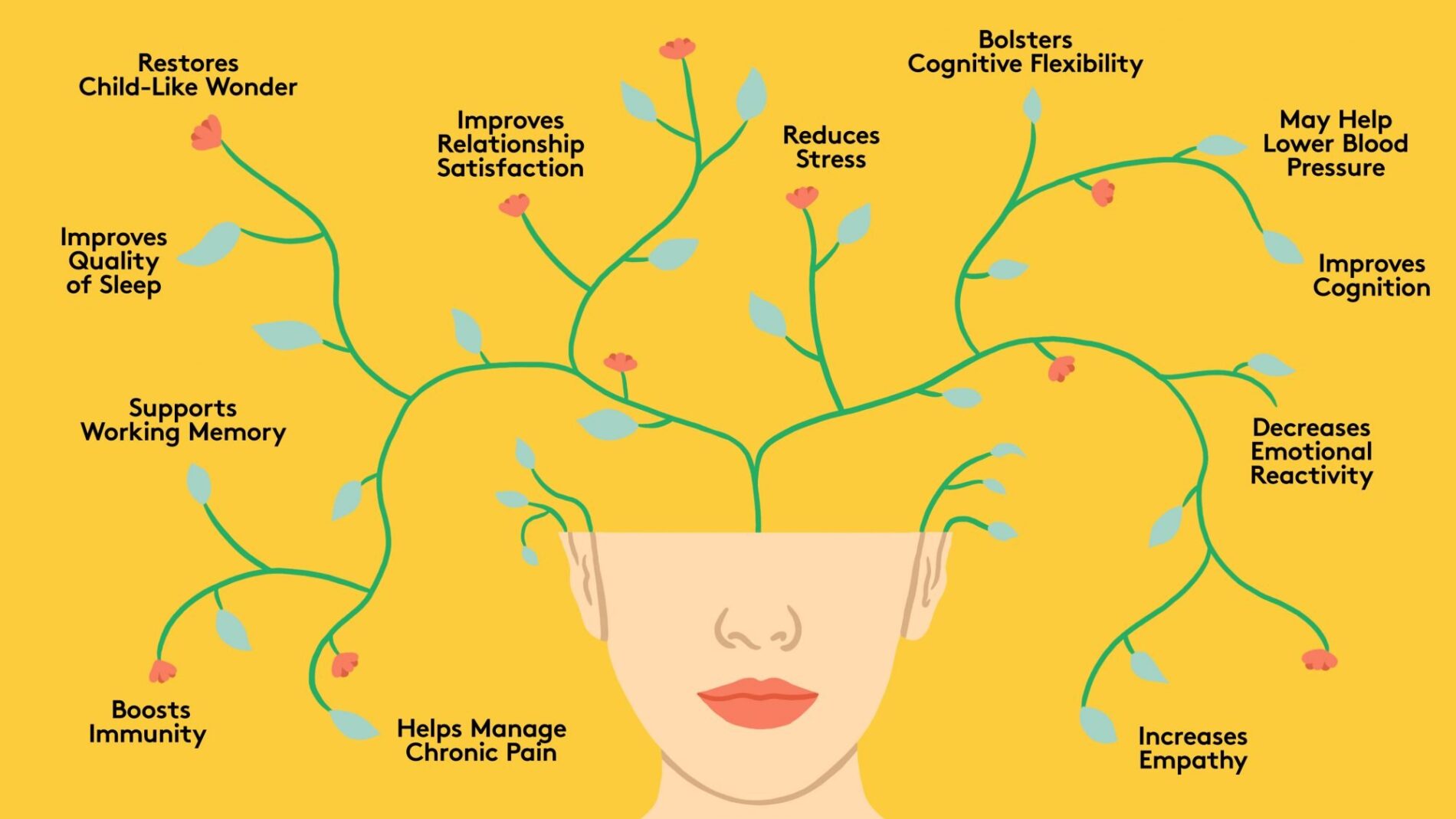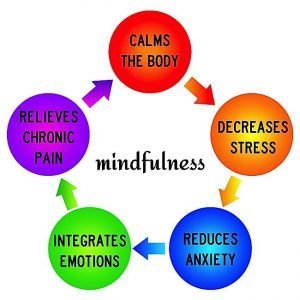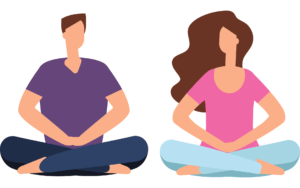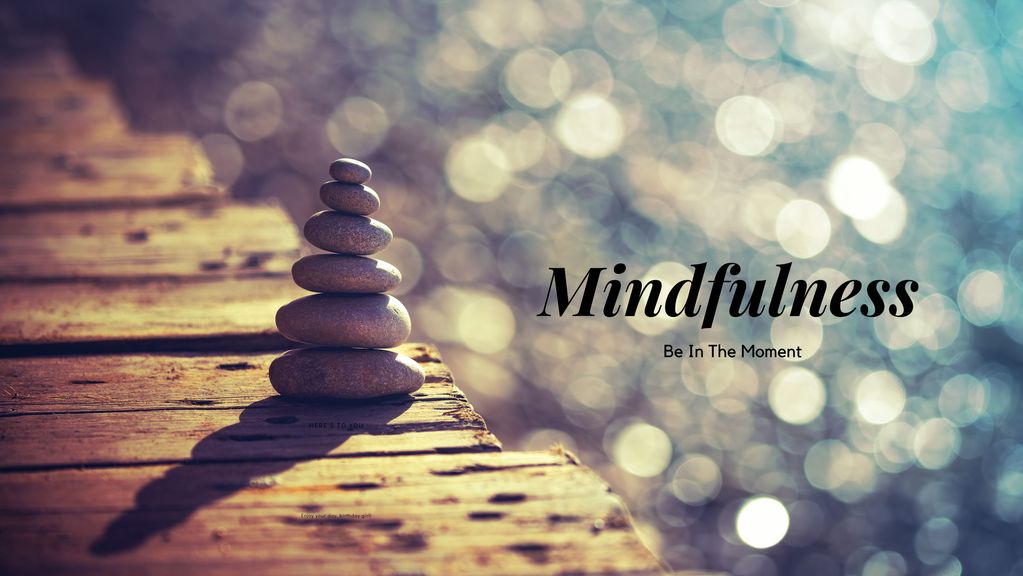The benefits of mindfulness are many. Research has shown that it can even help reduce stress levels! Anyone can practice being mindful – no special training or education is needed to start today!
Contents
What Is Mindfulness

Mindfulness is a practice of focusing your attention on the present moment and accepting your thoughts and feelings without judgment. It is not about ignoring your thoughts or feelings But accepting them without judgment. In a literal sense, it is “paying attention in a particular way: on purpose, in the present moment and nonjudgmentally.” It doesn’t require any special skills or training, just a willingness to give it a try!
Origin Of Mindfulness
One of the most well-known forms of mindfulness is meditation. It has been practiced for over 2500 years by Buddhist monks and philosophers. On a conceptual level, it involves clearing your mind and focusing on a single thought or object to help you explore present moment awareness. It has grown in popularity over the years thanks to many scientists who have conducted studies on mindfulness and published their research.
Goal Of Mindfulness
The goal with mindfulness is not necessary to make things perfect. But rather nonjudgmentally focus on how it feels in the present moment. It can help you learn how to focus less on your thoughts. And more on what’s happening in front of you. This skill is useful, especially when it comes to dealing with difficult emotions or stress.
The Logic Of Practice
Mindfulness is an excellent way to help people stay focused. It begins with preparing you to focus on the present moment. Further, it is accepting your feelings, thoughts, and bodily sensations as they come up. Accepting that you can’t control everything or everyone around you helps with staying focused.
Benefits Of Mindfulness

The benefits of mindfulness are innumerable and impossible to list down. However, for reference purposes, some direct and evidence-backed benefits of mindfulness are listed here.
Lower stress levels
Mindfulness can lower levels of stress and anxiety, improve behavior in teens, and reduce pain perception.
Boost focus
Studies show that mindfulness can boost attention, memory, and other cognitive functions. This is best achieved by meditation techniques like Vipassana.
Preserve mental health in old age
The practice of mindfulness has been shown to help preserve the mind from deteriorating with age thus helping seniors in their daily activities without needing any assistance in terms
Better sleep quality
Also, it is suggested that mindfulness may help with sleep quality because one’s mind won’t be racing thinking about the day ahead.
Low intake of calories
Mindful eating could also result in weight loss since mindful people are more conscious of how much they’re eating.
Less obsessive thoughts
Mindfulness also helps us overcome the tendency for our brain’s natural habit loop, which causes us to constantly think about people.
In short– Being more self-aware helps us gain clarity in our thinking which can help us make better decisions about our life and work. Being more present allows you to live in the moment. Therefore, it can help us enjoy life more.
Positive Effects Of Mindfulness On Health

We know that practicing mindfulness can help with:
- Anxiety,
- Stress Reduction,
- Depression Symptoms,
- And Even Chronic Pain!
Furthermore, it also helps relieve physical symptoms associated with stress. For instance, it brings down elevated blood pressure through deep breathing techniques. As it helps you slow down your heart rate. Some other proven effects of practicing mindfulness on your health are:
- Improved sleep quality
- Average blood pressure
- Better memory function
- Enhanced Digestion
- Sound Postural Health
Different Ways To Practice Mindfulness
It is important to remember that everyone experiences mindfulness differently. Therefore, mindfulness can be practiced in several ways. Some commonly practiced ways are listed below-
- Meditation– One of the most common ways is through meditation. Here, the person enters into a relaxed state and focuses on breathing to clear their mind of various thoughts.
- Body Scanning– One of the widely adopted techniques is “body scanning”. It involves focusing on each part of the body individually from head to toe until one feels completely calm and relaxed.
- Walking Meditation– Another way of practicing mindfulness is through “walking meditation”. In this. the person walks slowly and peacefully, focusing on each step they take without thinking about anything else. Importantly, this technique can be performed anywhere such as in an office or at home during a break.
- Mindful Eating– Some also practice mindful eating which involves taking the time to focus on the food they eat and how it tastes, while eating slowly to savor each bite. This allows people to eat less and lose weight as a result.
There are many ways of practicing mindfulness. But all involve focusing on your senses such as sight or sound. This helps you become more aware of what is going around you without letting other things get in the way. By becoming mindful, we can learn a lot about ourselves and the world we live in.
How To Practice Mindfulness Daily
One of the easiest ways to introduce mindfulness into your day is by simply taking a few minutes each morning before you start anything else. To practice mindfulness:
- Sit upright and close your eyes
- Become aware of the sensations around you: like the whisper of a breeze against your skin or the sounds in your immediate surroundings
- Don’t judge any thoughts that come to mind but instead recognize them
- Acknowledge your thoughts for what they are (just random thoughts) and gently push them away.
Repeat this process for about five minutes of your morning routine.
Once you’re done, continue with the rest of your day knowing that you have developed a new habit that will stick around for years to come!
A Small Tip For Beginners

A small tip for beginners or anyone who has a hard time quitting their mind-
- Focus on breathing in and out,
- Notice the sensation of air moving into your nose/mouth,
- And then back out again before focusing attention elsewhere
Relation Between Mindfulness And Meditation

Mindfulness is a type of meditation where you focus on your breath or body to help relieve stress, anxiety, or pain.
One can practice mindfulness without meditation by just learning how to be more mindful outside of the formal setting of meditation.
For example, one person may see a walk in the park as a peaceful experience while another might feel anxious about being surrounded by people. Both individuals can practice meditation and be mindful even if their experiences are completely different.
How Difficult Is It To Practice Mindfulness
It can be difficult to practice mindfulness at first but with time and effort. You will find it easier each day to focus on what’s going on around you rather than letting your mind wander.
On a beginning note, it is important to set aside time each day to practice mindfulness and meditation. For instance, one may decide that they will meditate every morning at a certain time before breakfast or go on a mindful walk during their lunch break.
How Often Should You Practice Mindfulness
Mindfulness exercises should be done regularly to keep yourself in check. It also help you take a step back from all these distractions we encounter almost every day.
There are no set rules, but if you begin to notice that your mind is wandering off more often than not during meditation or when you’re trying to focus on work, then it’s time for a change.
How Can Mindfulness Help Me
Mindfulness is an incredibly helpful practice for anyone who experiences anxiety, stress, or pain (or all three!). But it’s also beneficial even if you don’t!
Everyone can be mindful and bring more awareness into their lives. As mindfulness helps us understand how small changes in our lives impact us daily. This means that it will help you have greater control over your life!
Conclusion
The mindfulness movement has seen a lot of growth in recent years. But what is it?
Essentially, mindfulness is the act of bringing one’s attention to the present moment. It also means being aware and accepting without judgment of both thoughts and feelings that arise. Mindfulness can be practiced for just five minutes per day or more extensively as desired.
Research suggests this practice may result in increased well-being, reduced stress levels, better sleep quality, decreased blood pressure, improved focus on cognitive tasks (including memory), boosts immunity among other benefits. If you want to try out mindfulness yourself, there’s no time like now!
If you are looking for affordable Online Counseling MantraCare can help: Book a trial therapy session


